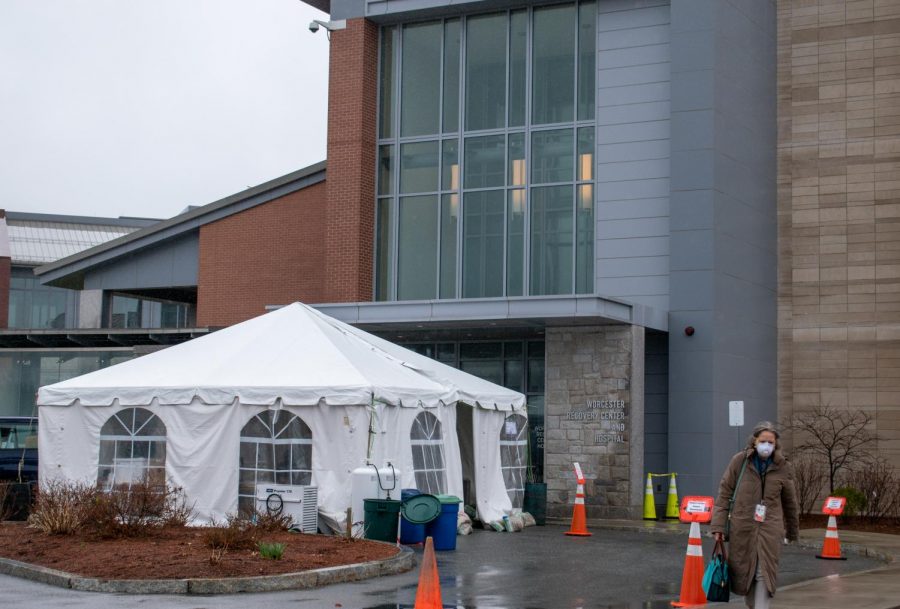Over the past week, University of Massachusetts students have woken up each morning faced with a choice: follow their gut instinct or abide by UMass policy. With nearly 400 new positive cases in the past week, many off-campus students have roommates or close friends who have tested positive for the virus. However, according to University policy, these students are to attend class unless they test positive or have symptoms. For many, this simply feels wrong.
The problem at hand is three-fold: there is an assumption of regular, accurate testing by students inherent in the policy; there is a lack of adequate contact tracing efforts to support the policy; and there are mixed messages coming from UMass.
Students and faculty with vaccine exemptions are required to test twice a week and once a week, respectively. Vaccinated students and faculty have no testing mandates.
Many students have been utilizing the self-test kits made available through the Public Health Promotion Center. The convenience of these tests may make students more likely to test regularly, which is a clear win for the public health of the University. However, the convenience may come at a cost. The asymptomatic test that UMass is distributing is a RT-PCR test, which is considered to be one of the best options for rapid-style testing.
It is important, however, to acknowledge the gaps that are created by using self-administered rapid tests as one of the primary testing methods. The downside to this convenient test is that the accuracy of the results depends on how deep a person inserts the swab into their nose. The deeper the swab, the higher the sensitivity and the more likely the test will be able to detect a positive result if it exists. If the swab isn’t inserted far enough, the positive result may go undetected. Thus, we are depending on every person testing to do it correctly.
The more effective alternative to this system is to mandate once-a-week testing administered through the Public Health Promotion Center while we continue to learn more about best practices related to breakthrough infections.
The contact tracing system – or lack thereof – is another factor inhibiting students’ ability to make informed decisions about their safety. On Wednesday, the School of Public Health and Health Sciences sent an email to all SPHHS undergraduates announcing that they are seeking “motivated” contact tracers who can start immediately.
Thanks to understaffing and underfunding, there are clear gaps in the contact tracing department’s ability to mitigate the spread of the virus. I was closely exposed, myself, multiple times and never received a contact tracing message. A friend’s roommate tested positive, and no one in the house got a call. Other friends of mine have received contact tracing calls days or even a week after their exposure, leaving them unsure of what to tell the people they have seen since then.
Most students have taken to their own contact tracing strategies, with the dreaded “So… I might have COVID,” text making its way around campus. UMass needs to take swift action to support the contact tracing department so that students have a clear idea of when they were exposed and what steps to take.
Finally, the mixed messages coming from the University are confusing, at best, and harmful, at the worst. Perhaps the first mixed message came when UMass mandated vaccines for all students and faculty but made no mention of any mandatory testing program, despite the Centers for Disease Control’s announcement that breakthrough infections are “expected.”
As we have transitioned to a fully in-person semester, the mixed messages have continued. Professors teach unmasked in lecture halls, but students doing presentations in the same lecture halls must remain masked. Students must attend class unless they test positive or have symptoms, but their roommates may be positive and share a fridge. What do you do when your instinct is to isolate and protect others, but you’re risking an unexcused absence – and a hit to your grade – if you do?
These messages are confusing, and they create blurred lines around what is safe. The University needs to release clear updated guidelines, beyond a FAQs page, on what students should do to keep themselves and their peers safe.
Let’s remember to test regularly, get vaccinated if you are not already, and be mindful of the fact that UMass does not exist in a bubble, but within a larger Amherst and Western Mass community that is affected by our choices. Let’s hold ourselves accountable where UMass won’t.
Tegan Oliver can be reached at [email protected].


















